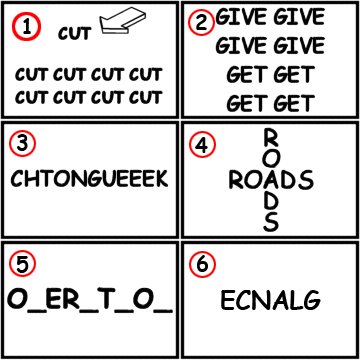Should you give the assessment if you don't care about the results?
Last week America's second most popular sporting spectacle took place. No, not the beginning of the NBA playoffs, but rather the annual National Football League player draft, an incredible three days of televised talent assessment, evaluation, and selection. The NFL draft, once a largely behind the scenes administrative event, has grown over the years into a multi-day, multi-media extravaganza, with an entite cottage industry of draft 'experts' and advisors seemingly making a really good living not actually evaluating players for the actual teams, but rather appearing on TV to inform and share with fans and viewers their opinions of draft-eligible players, offer their speculation on which players will be selected by which teams, and comment more generally on how well or poorly each team's talent evaluators did in making their player selections.
Making the 'right' selections from among the large pool of eligible talent, (almost all American college football players that have graduated from school, exhausted all of their college eligibility, or have declared themselves 'eligible' to be selected), like talent selection in any business, is challenging, complex, and incredibly important. On a good year, anywhere from 10-15% of a team's total active roster can be supplied via that year's draft. 'Hitting' or making the right picks, like finding a rare or overlooked talented player in later draft rounds, or avoiding 'missing', by bypassing players that later turn out to have unsuccessful playing careers often eventually means the difference in overall organizational success or failure.
All the teams know how important the draft process is, and thus, over the years more and more steps and components have been introduced to the pre-draft player evaluation process. From intense study of college game video, to a battery of physical tests and measurements, and more recently, even formalized tests of a potential player's cognitive and reasoning capability, in the form of what is called the Wonderlic test. The Wonderlic consists of 50 questions to be answered in 12 minutes, and is meant to give teams a general feeling for the overall thinking and reasoning capability of a player, as well as provide a means of comparison with all the other potential players who also take the test.
Most years the draft process ensues without much mention of the Wonderlic test as a part of the player evaluations, except only, and as happened this year, when a particularly high-profile and anticipated top draft choice caliber player gets a really low Wonderlic score. This year Morris Claiborne from LSU, regarded as one of the Top 10 available players in the draft reportedly scored a 4 (out of a possible 50) on the Wonderlic. A score of 4 is really, really bad, according to ESPN it was the lowest reported score in more that 10 years, (for comparison, an average score is about 21).
Despite the alleged poor score, Claiborne was indeed selected by the Dallas Cowboys with the 6th overall selection. So apparently the disastrous Wonderlic score did not impact Claiborne's standing and attractiveness as a candidate for the NFL. In fact, Dallas Cowboys owner Jerry Jones stated the test score was 'not an issue at all', and Cowboys coach Jason Garrett remarked, 'We talk about the test scores, but we also talk about 'What's his football IQ', also seemingly dismissing the value of the Wonderlic as a means to predict future performance as an actual football player.
Now of course the Cowboys reps might be trying to defend their selection of Claiborne and downplaying the significance of the Wonderlic score is certainly in the team's self-interest, but the ESPN story linked above also refers to Claiborne's view that the test was essentially meaningless and not at all important in determining his ability to actually play football at the highest level. He is quoted as saying - "I mean, I looked on the test and wasn't nothing on the test that came with football, so I pretty much blew the test off."
Sort of an odd situation, the player, (candidate), and the team, (employer), both essentially admitting that one of the common if not primary assessment tools given to all players doesn't have anything to do with the actual job, and as soon as the assessment results don't fit with what our more traditional and time-tested evaluations tell us, (like actually watching the candidate play football), they will essentially be discarded from consideration. Seems like a big waste of eveyone's time.
Now sure, you can argue with me that Caliborne, as a top player in this year's draft was not ever going to be impacted by his score, (good or bad), on the Wonderlic, and that the test is really meant for use as a supplementary measure or data point for players whose football talents are more questionable, and that it can be used to help make decisions between closely related prospects.
But the league made Caliborne, and other 'top talent' take the test. And I bet, if you look closely at your organization's recruiting practices as well, you might find similar examples of making 'top talent' run through hoops or perform silly, eventually meaningless, exercises because 'that's just our process.'
Claiborne didn't really have an option to decline the test, the NFL has an effective monopoly on professional football in America. But any 'top talent' you might be recruiting? Well they likely have plenty of options. You probably want to make sure your process understands that.
 Recruiting,
Recruiting,  sports tagged
sports tagged  8 Man Rotation,
8 Man Rotation,  Recruiting,
Recruiting,  Sports,
Sports,  assessment
assessment  Email Article
Email Article 
 Print Article
Print Article 
Reader Comments (1)
The NFL draught, formerly a mostly behind-the-scenes administrative exercise, has evolved over time into a multi-day, multi-media extravaganza, with a cottage industry of draught 'experts' and consultants seemingly making a fairly fine income without ever evaluating players for the actual teams.
Best Commercial Tire Repair Services in Greenwood LA